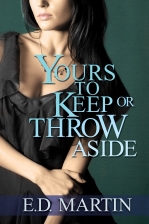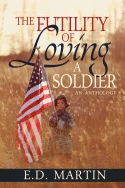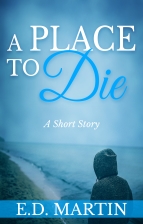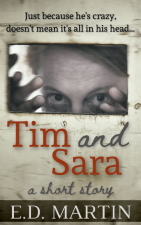A couple months ago I participated in the 2012 A to Z Challenge. Being a nice reciprocal blogger, I also read blogs by others taking part in the event, which basically consisted of writing a post for every letter of the alphabet. Many had posts like mine – completely random – but author Christopher Starr over at Crooked Letterz focused on villains, including in-depth analysis of what makes them tick. Even if you’re not a fan of comics or movies, I highly suggest you read his insightful posts on what makes someone bad.
I recently had a brief conversation with another writer about the decline of chivalry. He lamented that girls go for the jerks who treat them like crap, passing over the nice guys who would never hurt them. I countered that perhaps girls see something redeeming in those jerks, something that no one else sees that makes them worth being with. For example, I knew a guy who generally came off as arrogant, abrasive, and crude, and overall annoyed the hell out of me. But one-on-one with him, he was conscientious of my thoughts and feelings and instinctively protective of me. He shared his backstory with me so I could understand his motivations, and after that it was very difficult for me to see him as a one-dimensional bad guy.
I just finished the Hunger Games series. I’ll try not to spoil the ending, but one thing that stuck out is President Snow’s behavior at the end. President Snow is despicable, no question about it, but at the end he reminds Katniss of a promise he made to her, a promise that brings him a bit of redemption. In other words, he evolves from a horrible excuse for a human being to a, well, slightly less horrible excuse for a human being.
My whole point with this – if you want a memorable, effective bad guy, don’t make him a completely one-dimensional bad guy. Like President Snow, have him kill villages of people without hesitation but keep a promise he made to a young girl. Like my friend, make him insufferable to be around but loyal to his principles.
To be a good villain, I think the bad guy needs to be someone we can identify and sympathize with, and someone the protagonist can connect with as well.
Christopher Starr asked, in the comments of one of his posts, “Ed, what do you think about the responsibility of making the villain evolve over time? Do we have more compelling villains if they have similar emotional/developmental arcs?”
I responded, “I think they are more compelling, because it becomes a moral lesson for the audience. Two similar characters at some point branch out from the same event – a shared childhood, a trauma, a disappointment. Faced with two choices, one aims for morality and the other for base revenge. It’s a choice we all have to make, and I think it makes the villain that much more terrifying, because we realize how easily we ourselves could be that villain.”
And that’s the key, I think, to writing a good antagonist or villain: “we realize how easily we ourselves could be that villain.” And in order to connect with that villain, in order to see that, we need them to have redeeming qualities, because no one thinks of himself as all bad. We need common traits, like love of orphans or kittens, or chivalrous behavior, like holding doors open.
If we know the villain can be good, it leads to the question, what about us? What’s keeping the protagonist or us from turning into that villain? If you want your story to stick with people, I think that’s an important point to address.
Who’s your favorite villain, either literary or in movies and pop culture? Do they have any redeeming qualities, and how does that affect their relationships with the protagonists?






